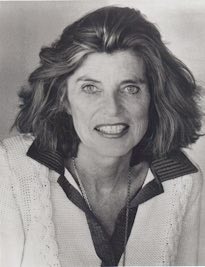For more than thirty years, Eunice Kennedy Shriver served as a leader in the worldwide struggle to enhance the lives of people with intellectual disabilities.
After her graduation from Stanford University, she worked for the U.S. State Department in the Special War Problems Division, and later became a social worker. Relocating to Chicago, Illinois in 1951, Shriver worked with the House of the Good Shepherd and the Chicago Juvenile Court.
In 1957, Shriver took over leadership of the Joseph P. Kennedy, Jr. Foundation, named in honor of her late brother. During her tenure, the foundation aided in the creation of The President’s Committee on Mental Retardation (1961) as well as the development of the National Institute for Child Health and Human Development (1962).
Throughout the late 1950s and early 1960s, Shriver visited institutions for people with intellectual disabilities. Appalled by the treatment of these individuals and motivated by the notion that given the right opportunities, they would be more capable than commonly believed, she began Camp Shriver in 1962. At the summer day camp, held at her home, Shriver led attendees through a variety of physical activities. It was here that the Camp Shriver concept – through sports people with intellectual disabilities can realize their potential for growth – was developed. The concept began to spread, and in 1968, the first International Special Olympics Games were held in Chicago. At the ceremony, Shriver announced the creation of a national program, the Special Olympics, formed to give people with intellectual disabilities “the chance to play, the chance to compete and the chance to grow.”
Shriver was the recipient of many honors, including the Presidential Medal of Freedom (1984), the nation’s highest civilian award. In 2009, the U.S. National Portrait Gallery unveiled a historic painting of Shriver; this work was the gallery’s first commissioned portrait of an individual who has not served as a U.S. President or First Lady.
Today, Shriver’s legacy lives on through the Special Olympics.

